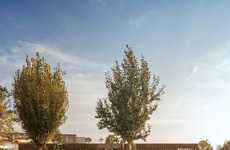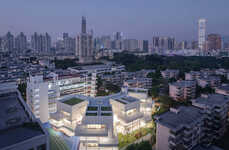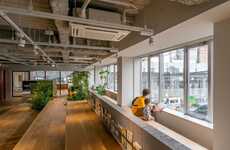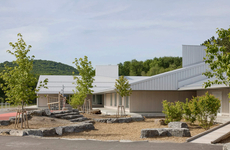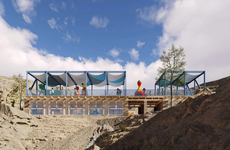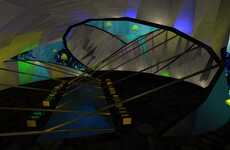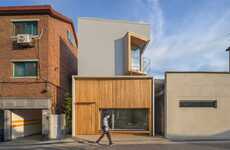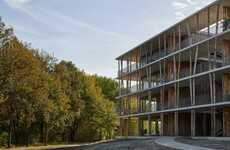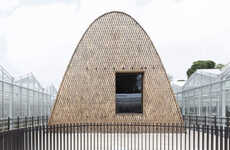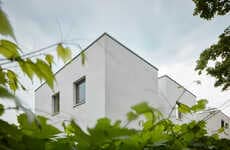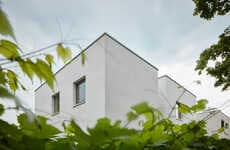
Korea's National Arboretum Children's Forest School
Francesca Mercurio — July 29, 2021 — Eco
The Korea National Arboretum Children's School Forest was designed as an educational space to inform children on the importance of the natural environment. Designed by GEEUMPLUS architects, the space serves as an exhibition site to experience the outdoors. The design was inspired by the relationship between architecture and nature, and how they find a means to coexist.
The design was built around the existing forestry, as to not intervene with the natural environment. The design also focuses on the significance of the bee, and how their existence is vulnerable due to climate change. Thus to emphasize the importance of the bee in the smooth running of the ecosystem, the structural design is informed by the shape of the honeycomb.
The project is set to be completed in 2021.
Image Credit: GEEUMPLUS
The design was built around the existing forestry, as to not intervene with the natural environment. The design also focuses on the significance of the bee, and how their existence is vulnerable due to climate change. Thus to emphasize the importance of the bee in the smooth running of the ecosystem, the structural design is informed by the shape of the honeycomb.
The project is set to be completed in 2021.
Image Credit: GEEUMPLUS
Trend Themes
1. Nature-inspired Architecture - The use of design elements found in nature to create sustainable architectural structures that coexist with the environment.
2. Eco-education Spaces - Building learning environments that inherently teach the importance of preserving the natural environment and living sustainably through design elements.
3. Bee-friendly Architecture - Incorporating design elements that serve as habitat for bees and other pollinators, promoting their survival and highlighting their importance in the ecosystem.
Industry Implications
1. Architecture - Architecture firms can explore using nature-inspired design elements in new projects that promote sustainability and environmental preservation.
2. Education - Educational institutions can invest in eco-education spaces that provide hands-on experiences on sustainability and environmental preservation for students.
3. Agriculture - Farmers can incorporate bee-friendly architectural designs in their buildings and farms, promoting pollinator habitats and enhancing crop yields through pollination.
6.7
Score
Popularity
Activity
Freshness

